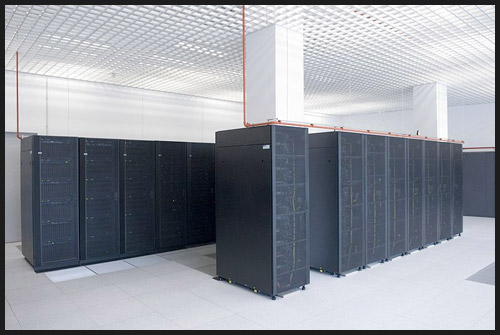
What is the Singularity?
The Technological Singularity, a term coined by mathematician and author Vernor Vinge in the 1980's, is the idea that at some point technological progress in the realm of intelligence will reach a point where the future is very difficult to predict and changed in a fundamental way.
At the root of this concept is the belief that a super-human intelligence can be created. Some such intelligence, being more intelligent than its creators, will be able to create an even better intelligence. This will spawn a positive feedback loop wherein this self-improving intelligence will be able to cause large amounts of technological progress in a short period of time. This point in time will, according to Vinge, lead to a breakdown in humans' ability to model their own future.
Why the Singularity Will Occur
Although there
are many different interpretations of how the Singularity will occur among its
proponents, the key concept is that some sort of super-human intelligence will
be created either through artificial intelligence or through the technological
amplification of human intelligence. The most likely route to this is through
the use of computers. It is Moore's Law and the rapid growth in computer
technology that has some of the most high profile proponents, like Vinge,
estimating that the Singularity will occur within 40 years.

The scale of the graph is logarithmic, so the best fit line shows exponential growth.
Moore's law states that the number of transistors on an integrated circuit doubles approximately every two years. This prediction has been incredibly accurate for decades now and is predicted to be accurate for the next 5-10 years. Despite this apparent end in the near future to Moore's law, Intel executive Pat Gelsinger pointed out in 2008 that for the past 30 years people had been estimating that Moore's law would hold for at least another decade.
Moore's law is important because it is indicative of exponential growth of technological progress and processing power. While there are definitely fundamental limits to how many transistors you can fit on a chip, at some point you are working with atoms, that does not mean the end of growth. There are newer, more efficient technologies currently being developed in these fields. Many other parts of computing parallel the growth in Moore's law. Author and inventor Raymond Kurzweil, a major proponent of the Singularity, plotted other graphs like amount of computing power purchasable for $1,000. The results were nearly the same, exponential growth doubling the power every few years. This exponential even held true when he traced it back to pre-transistor computing days. He plotted even more technological markers: price of RAM, speed of processors, cost of transistors, and even the cost of sequencing DNA; all of these had the same result.
While there are many arguments that the current exponential growth is unsustainable, or that it isn't really exponential at all, this does not affect the possibility of the Singularity, only when it will occur. There are only a few debatable points about whether the Singularity can occur or not.
One point up for debate is the idea of creating super-human intelligence. Without super-human intelligence, some aspect of the Singularity, like the rapid increase in technological progress, would not be possible. The entire idea of a recursive feedback loop wherein the technology improves itself is based on the idea that it is more intelligent than its creator and can optimize itself even further. It is important to realize that there is no proven, fundamental law that prevents an intelligence from creating something more intelligent than itself. There are real world analogies that tend to show that this is possible, even if it is still a ways off. There are computer language compilers which compile their own code. As they optimize, they can recompile their own code to be even faster at compiling. This is not exactly the same since it only involves one step, not an iterative process, but it does give some precedent.
Another point of debate is that any artificial intelligence is incredibly specific. Machines like Deep Blue and Watson could potentially be called super-human in their abilities to perform their normally human tasks, but neither can hold a conversation. Some biologists hold that there are fundamental differences between things like neurons and chemical reactions and the ones and zeros of a computer program. But even here advances are being made. Neuroscientist Henry Markram has been working on what is called the Blue Brain Project, an attempt to create a neuron-by-neuron simulation of a brain. While they are currently only able to simulate one part of a rat's brain, there is hope that within the next decade they could have a fully complete, virtual human brain. Even though, as Kurzweil points out, it could take who knows how long to actually educate the brain. However, regardless of how long it takes, eventually it will be possible to have an immortal brain capable of learning continuously without the drawbacks of aging. The very fact that this is possible almost guarantees that the Singularity will occur, it is just a matter of when.

These servers will hold a virtual brain within the next decade.
edit this page